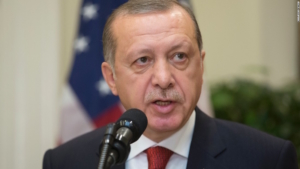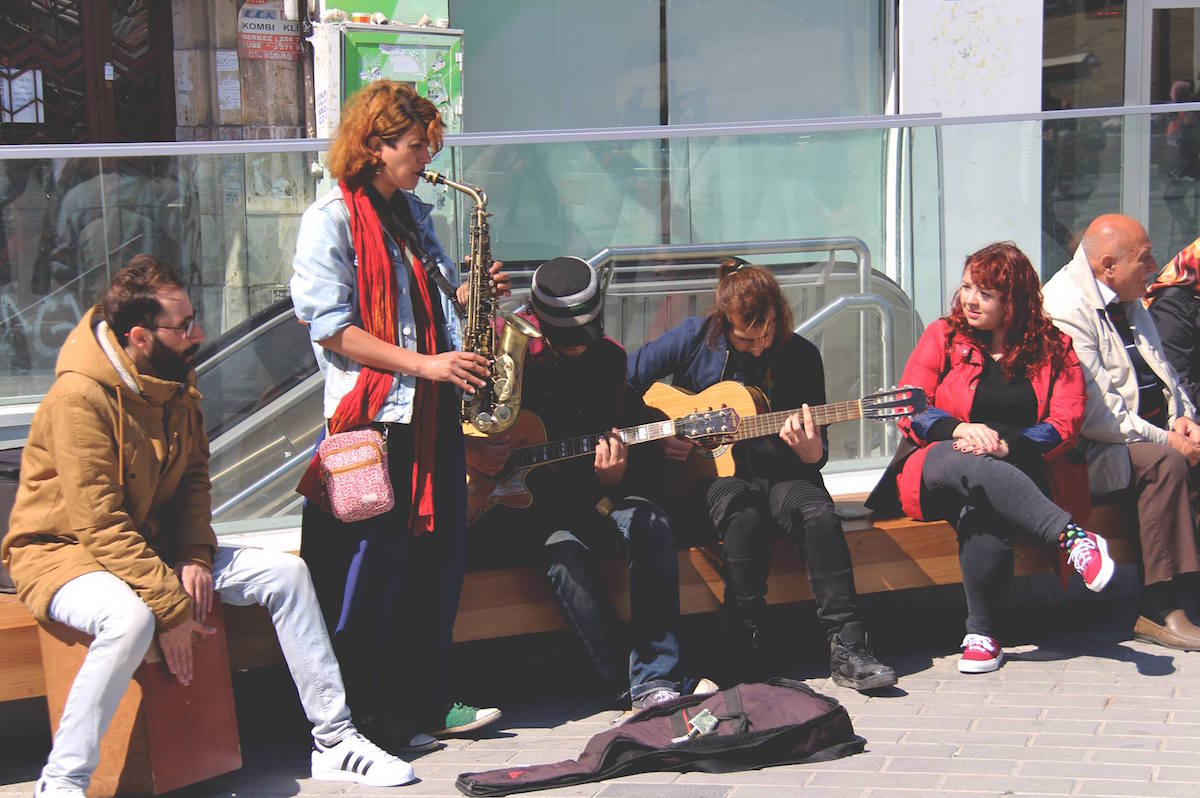Turkey to hold historic vote for president and parliament

Citizens of Turkey will elect the country’s next president and parliament on 24 June. According to polls, the ruling party has every chance of getting a majority vote in the parliament. But the incumbent Recep Tayyip Erdoğan will have a hard time holding on to the presidency for a second time.
From a parliamentary republic to a presidential government
The next parliamentary elections were only supposed to take place in 2019. The decision to hold them earlier and to combine them with the presidential elections was made in February 2018.
Before the attempted military coup in June 2016, Turkey was a parliamentary republic, and the prime minister was considered the head of the country.
However, after the riots in Istanbul and Ankara on 15 and 16 June 2016, and an unsuccessful attempt to come to power, a long-standing state of emergency prevailed in the country.
In April 2017 a referendum was held and several amendments were made to the constitution. As a result, Turkey moved to the presidential system.
The upcoming elections will complete this transition.
There are six candidates in the presidential election:
• Recep Tayyip Erdoğan, the current president of Turkey;
• Muharrem Ince, chief opposition candidate – head of the parliamentary faction of the Republican People’s Party;
• Meral Akşener, former Minister of Internal Affairs of Turkey (1996-1997), Chairman of the opposition Iyi (Good) Party;
• Selahattin Demirtaş, a former MP and leader of the Democratic People’s Party, currently under arrest;
• Temel Karamollaoğlu, Chairman of the Saadet (Felicity) party;
• Doğu Perincek, Chairman of the Vatan (Homeland) party.
The candidates and their chances of success
Recep Tayyip Erdoğan

Erdoğan was elected as the 12th president of Turkey in 2014. Before this he ruled the country as prime minister for 11 years, from 2003 to 2014.
During Erdoğan’s rule Turkey was not just taken out of an economic crisis, but showed the highest growth since the days of Ataturk.
From 2003 to 2009, Turkey achieved the best GDP (Gross Domestic Product) indicator among European Union countries. In the same period, the country completely repaid its debt to the International Monetary Fund. The level of social welfare of citizens had also risen sharply.
New highways and large bridges were built, and a high-speed tunnel was constructed under the Sea of Marmara.
The number of airports in the country has increased from 25 to 57, and the number of universities from 70 to 186.
However, since 2009 this stable development has started to slow down and the unemployment rate has risen from 10 to 14 per cent. In 2002 the current deficit was 2 per cent, but in 2014 the figure rose to 7.9 per cent.
Despite all the achievements of Erdoğan’s government, he was accused of dictatorial inclinations from his first days in power.
In 2013 Istanbul protested against the cutting down of trees and construction work in Gezi park. The protest was against authoritarianism in the country. Erdoğan ordered the dispersal of the rally, resulting in 1 police officer and 7 protesters killed, with more than 9 thousand people injured and 126 protesters arrested.
During the attempted military coup in June 2016, 240 people were killed and 2 200 people were injured. Erdoğan ordered the arrest of more than 100 thousand people. Human rights activists claimed that many of them were tortured and 22 people were killed in prisons under unknown circumstances.
The events of 2016 significantly strengthened the image of Erdoğan as a dictator.
• Mass protests and dozens of arrests – the first reaction to the outcome of the referendum.
Erdoğan is most condemned today in Turkey for his policies which contradict the progressive ideas of the founding father of the Turkish Republic, Mustafa Kemal Atatürk.
Atatürk was a firm believer in the separation of state and religion. Erdoğan, on the contrary, is making attempts to introduce changes of a religious nature to the constitution.
According to many experts, the current presidential and parliamentary elections will be the most difficult for both Erdoğan and his party.
For example, Emin Çölaşan, a well-known journalist and political observer of the Sözcü newspaper, wrote that Erdoğan ‘is afraid for the first time on the eve of the elections and is in anxious expectation‘.
“They understand that if they fail in one of the elections, they will be helpless, like a fish thrown out of the water … An end will come to their reign, … to their excessive self-confidence … to enriching supporters, in one word, to it all.
“He will leave the palace. All state powers will be lost. From now on the trillions from the state budget they have squandered on their own pleasures without documents or receipts will only be seen in dreams.”
Çölaşan believes that if it comes to the second round in the presidential elections, all the political forces will unite against Erdoğan.
Muharrem Ince

Muharram Ince is the candidate of the main opposition People’s Republican Party which was created by Atatürk himself. He is seen as the main rival of Erdoğan in the presidential elections.
Ince is a member of the fourth convocation of the parliament and the head of the faction. He is known for his well-reasoned and harsh criticism of Erdoğan’s government. In addition, he has proven to be a strong speaker in debating Erdoğan.
Sözcü published an analytical review of the French newspaper Le Monde, titled ‘The Person Challenging Erdoğan’. They suggest there is a high probability that Ince will move to the second round.
Meral Akşener and Temel Karamollaoğlu
These two presidential candidates do not have strong chances at winning the presidency. However, their parties, Iyi and Saadet, entered the parliamentary elections in the ranks of the Milliyet block – together with the Republican People’s Party. If Erdoğan and Ince go to the second round, they will support the latter.
Selahattin Demirtaş
This candidate is running his campaign from prison. Demirtaş is the leader of the People’s Democratic Party and represents the interests of Kurds in the country. He was a deputy of three convocations of the parliament, but in November 2016 he was arrested on charges of ‘inciting riots’.
Demirtaş has no chance of winning. It is assumed that in case of a second round of voting, he will support Ince (or rather, speak against Erdoğan), but he himself has not yet made any official statements on this matter.
Dogu Perincek
Perincek and his Vatan (Homeland) Party have the slimmest chances of winning. However, as of 2014 he has aligned himself with Erdoğan.
Forecasts
The pollster Remres conducted a preliminary survey which suggested that the main struggle would be over minuscule differences in votes between Erdoğan (41.8 per cent) and Ince (41.3 per cent).
A second round is considered inevitable.




















